Accounting & Control
A birds-eye view synthesis of intellectual and political history
Moses Hess framed socialism as an ethical project to be realised through the reorganisation of economic relations (social justice through economic governance); Karl Marx and Friedrich Engels systematised that insight into a materialist conception of history and translated it into a programme of practical political action.
In practice, their model needs the blanket of surveillance Lenin later spells out as accounting & control, which ultimately shifts real power to whoever commands the unit of account — the central bank — while Marx through the ‘fragment on machines’ points to a fully automated future that eliminates the bourgeois middle class.
Hess’s vision is picked up by Alfred Zimmern in The Third British Empire (1926), which calls for the second British empire to be replaced by a commonwealth, used for the similar purpose of international social justice through economic governance.
Alexander Bogdanov develops Lenin’s ‘accounting & control’ through supply chain analysis and early-stage systems theory (Tektology), while Marx’s producer–consumer relations are carried forward into input–output analysis by Wassily Leontief.
McNamara puts Leontief’s vision to work through PPBS, and scales it via conditional Third World aid run through USAID and the World Bank — while ‘Spaceship Earth’ normalises the world-as-system view, governable by input–output analysis.
Meanwhile, Kenneth Boulding and Ludwig von Bertalanffy push Bogdanov’s Tektology into holarchical General Systems Theory; C. West Churchman bolts on ethical conditionality; via Erich Jantsch this flows into adaptive management — then global modelling through agencies like the IIASA, the IPCC, Planetary Boundaries, Digital Twins, and the contemporary AI which presently threaten to eliminate all bourgeoise jobs, precisely as Marx outlined.
Surveillance data — live-stream satellite feeds, public-health surveillance, city IoT sensors, and even social-media and mobile-phone data — is piped into digital twins, which forward-predict on the basis of gathered surveillance information. This commonly yields indicators: processed surveillance data that sketch contemporary societal trajectories, stored in indexed datasets such as the SDG Indicators.
PPBS evolves into Results-Based Management (RBM), with Key Performance Indicators (KPIs) as traceable program parameters. RBM + KPIs map directly onto SDG indicators, the basis for many World Bank development programs where funding is withheld when threshold targets are not achieved.
Consequently, Third World development-aid programs with attached conditionalities trace back to an architecture that ultimately rests on Marx’s producer–consumer relations, running through Lenin’s ‘accounting & control’ (surveillance and enforcement) and Bogdanov’s Tektology (systems theory).
And the entire system rests on a unit of account controlled by central banks, distributed for purposes deemed ‘ethical’ — precisely the operating logic set in motion by Hess, Marx, Engels, Lenin, and Bogdanov.
And it ends with ‘ethics’ — social, environmental, economic — filtered through an intergenerational lens and executed via CBDCs, where conditionality is enforceable at the individual producer–consumer relation — exactly as Marx’s logic implies.
In contemporary politics, we’re sold two political ‘sides’: a social-justice left versus an individual-financial-liberty right. In the United States, Biden leans into a Liberation-Theology-flavoured social-justice frame, while Trump’s Prosperity-Gospel rhetoric aligns with individual financial liberty. But what no one bothers telling you is that both are facets of the Zimmern–Hess programme: international social justice executed through economic governance.
Even the grandest election now runs as a Hegelian dialectic that resolves to central-bank dominance — and to Paul Carus’s interfaith infiltration of the 1893 Parliament of the World’s Religions. Its 1993 centennial, via Hans Küng (with Leonard Swidler), rebranded the move as ‘A Global Ethic’.
Consequently, vote for a mainstream parts like Labour or Tory — it won’t matter in the slightest. The only difference is the route of implementation. The end objective is (international) social justice through economic governance, administered by central banks — should you align with the trajectory and you may even be selected to participate in the arc towards ‘Inclusive Capitalism’.
Yet the future is not written. The trajectory may be planned, but we do not live in a deterministic world — even if Spinoza wrote his pivotal Ethica on that assumption.
The entire vision rests upon inversion. Accept Marx’s premise and the sequence follows with logical inevitability; refuse it, and the door to genuine freedom opens.
Not the artificial kind Marx and Engels covertly promoted which lead to central banker enslavement through promises of a ‘moral economy’.
Start with people. Ideas and choices come first; the economy is a tool, not our fate.
Keep real prices and cash. Let buyers and sellers set prices; don’t allow ‘programmable’ money that can be switched off or limited by purpose.
Put rules around money, not inside it. Set clear legal limits on what banks and central banks can do — don’t turn the payment system into a policy remote.
Keep ethics human. Let morals live in people and communities, not in scorecards and dashboards — and always keep a real opt-out.








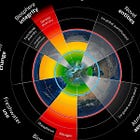




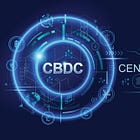

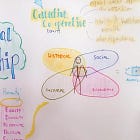
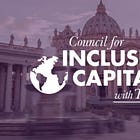

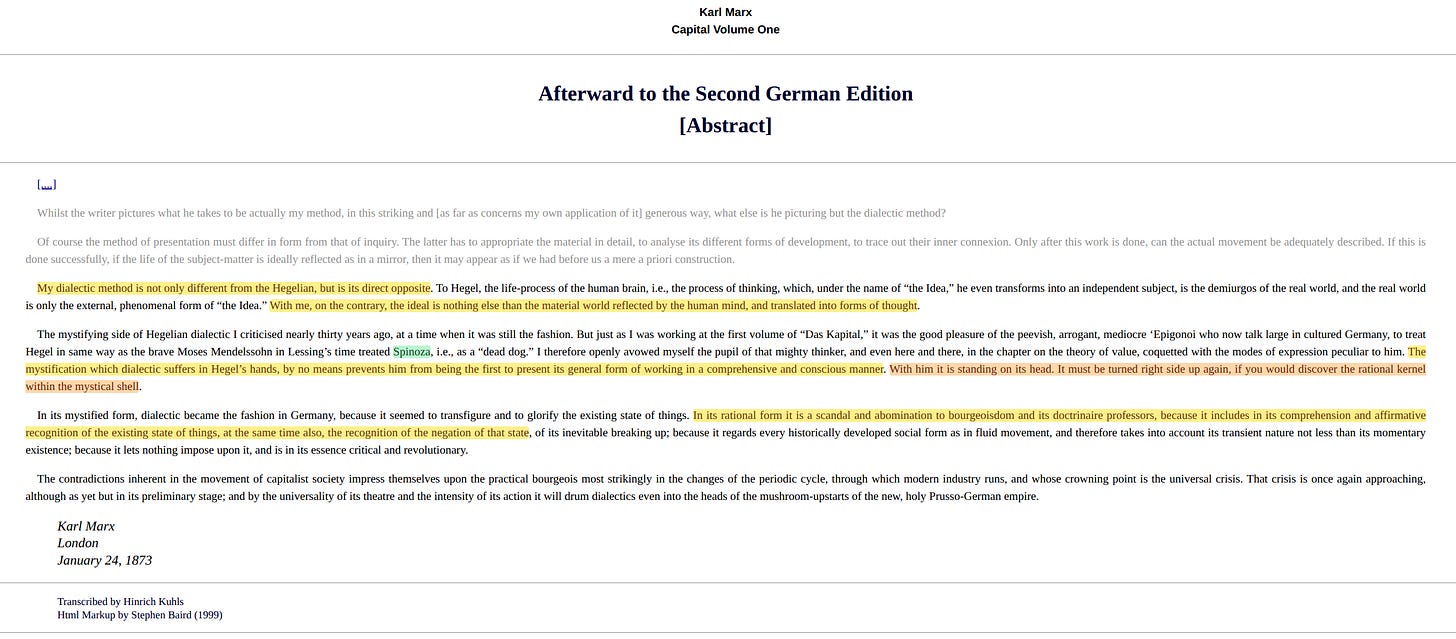
Tight. Very tight
So, I’ve been carefully following your posts for some time now. (I admit it’s not easy because apparently, some muse has got ahold of you and your posts are relentlessly forthcoming and it does takes time to digest) I’ve previously expressed my respect and gratitude for your (completely on target) insights and research. For anyone paying attention, and reading carefully, you’ve laid out, step by step, the underlying principles and progress of the methodical, relentless and systematic shift to this (what to call it?) global governance control grid. However, after pondering your descriptions and explanations of the grim evolution of this movement, I can’t help but consider this question: Is there a group of people, who over a long-term time frame, exceeding even their own life span, have the acumen and single-mindlessness to put all this into action? If so, who are these people? (I’m sure everyone will have their own answer to this; deep state, Rothchilds, aliens, zionists, central bankers, the Freemasons, Rockefellers, the Illuminati, CFR, skull and bones, even reptiles, etc). Or…… could it be, just the inexorable way of things? As Gurdjieff put it, “we live under the law of accident and everything just happens”?